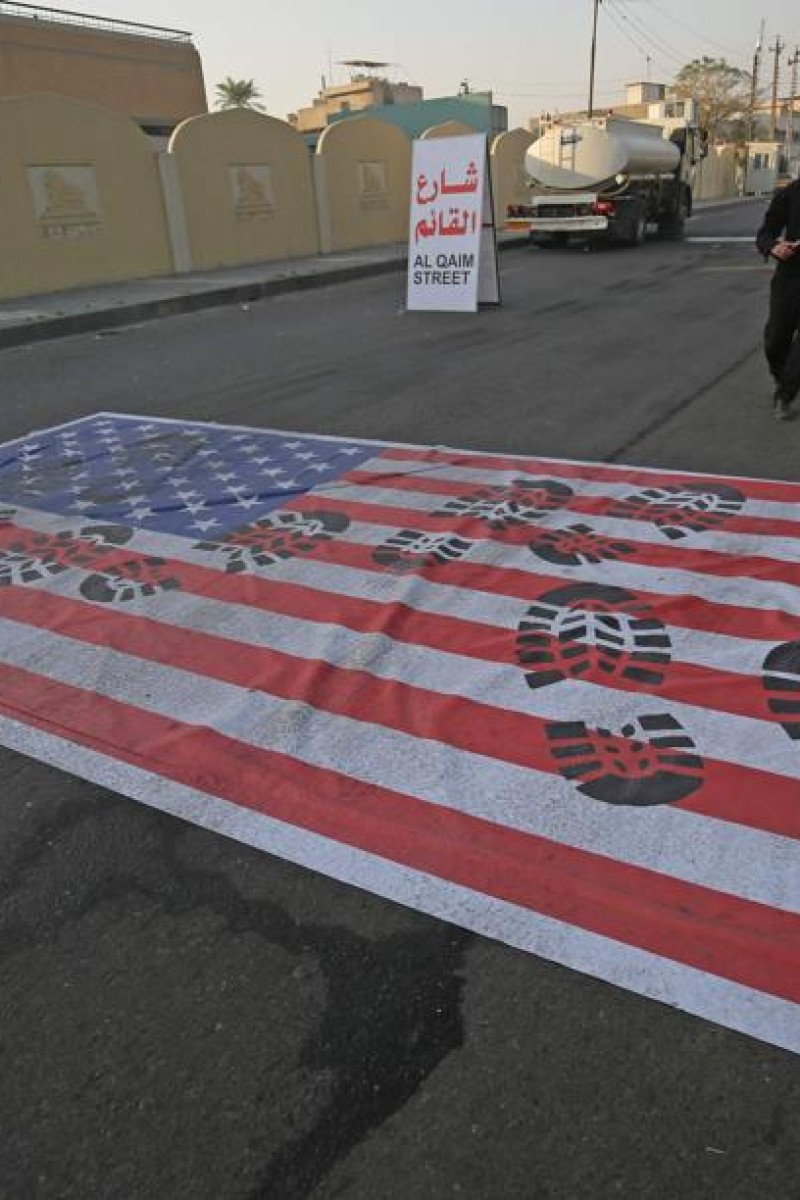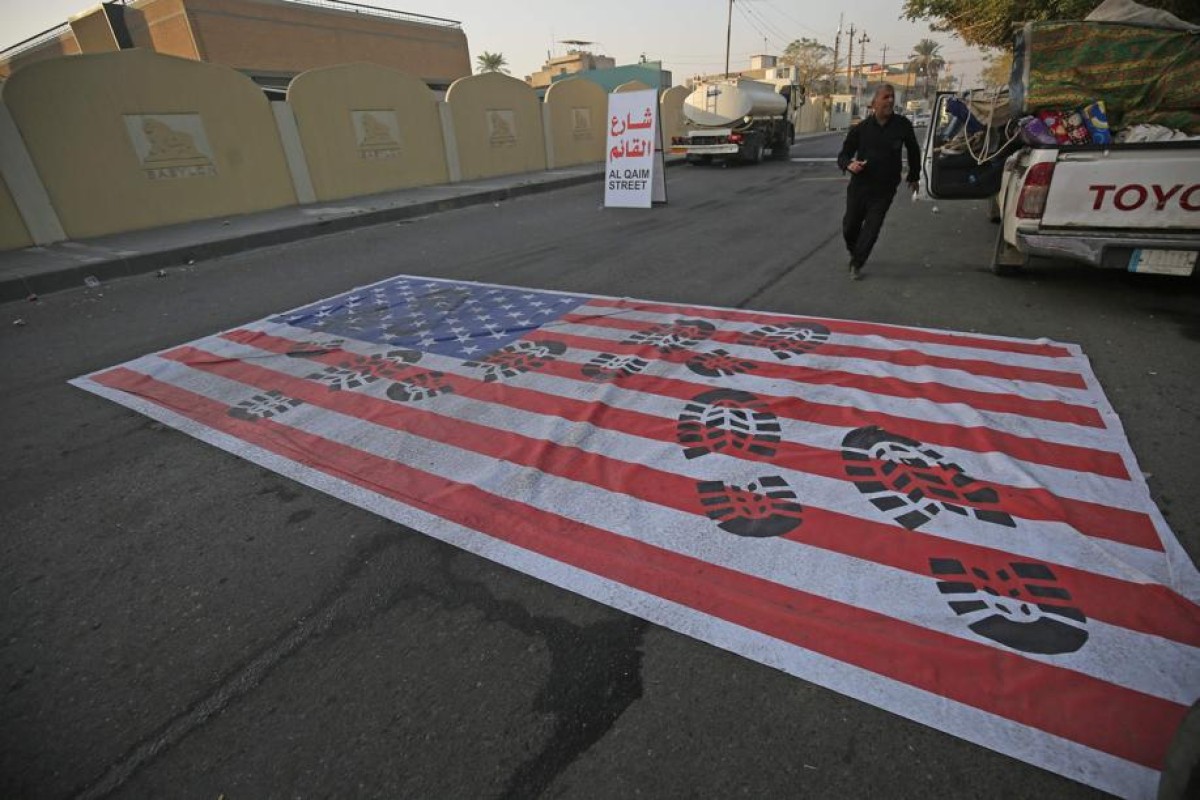
US President Donald Trump orders airstrike that kills key Iranian military leader
Published:
Listen to this article
Qasem Soleimani was killed near Baghdad International Airport; the leader of Iran has promised retaliation
Dannie Aildasani |
Published:
Dannie Aildasani is the Web Editor for Young Post. She has previously lived and worked in South Korea, Ecuador and the United States, and has a Master's degree in International and Public Affairs from the University of Hong Kong. She specialises in topics related to health and wellness, relationships, international relations and US politics and history.
expand
Comment
 A mock US flag is laid on the ground for cars to drive on in Baghdad following news of the killing of Iranian Revolutionary Guards top commander Qasem Soleimani in a US strike on his convoy at Baghdad international airport.
A mock US flag is laid on the ground for cars to drive on in Baghdad following news of the killing of Iranian Revolutionary Guards top commander Qasem Soleimani in a US strike on his convoy at Baghdad international airport.An attack by US forces near Baghdad International Airport on Friday has killed senior Iranian commander Qasem Soleimani and Abu Mahdi al-Muhandis, the deputy chief of Iraq's paramilitary Hashd Shaabi forces.
Why is this a big deal? Here are some important things to know:
It's on the scale of the death of Osama bin Laden
Soleimani was a major public figure in Iran and one of the most popular officials in the Iranian government. He was the frontman for Iran's regional ambitions in Syria, Lebanon, Yemen and Iraq.
Iran's Supreme Leader, Ayatollah Ali Khamenei, said "Soleimani was the international face of resistance, and all lovers of resistance will be his avengers."
He also promised that harsh retaliation is waiting.
Iraqi TV and three Iraqi officials said Friday that Soleimani, the head of Iran’s elite Quds Force, has been killed in an airstrike at Baghdad’s international airport.
Photo: Office of the Iranian Supreme Leader via AP
Iran and the US already have a rocky relationship
Tensions between the US and Iran go back many years, with one significant reason being the 1953 Iranian coup d'état, when the US helped overthrow the country's democratically-elected leader.
During the 2003 war in Iraq, Iran funded and armed militias that attacked American bases and diplomatic institutions, and supplied explosives capable of penetrating US armour.
There has been escalating agression between the two countries for a while, and it can be traced back to when the US pulled out of the Iran nuclear deal, which would have lifted sanctions (penalties) against the country in exchange for it scaling back its nuclear programme. Iran attacked US oil tankers and drones earlier in 2019 and in December, killed a defence contractor working for the Americans on a US base.
Iran has supported the Syrian president and rebels in Yemen
Iran sent its own forces in to save Syrian President Bashar Assad, who has been implicated in war crimes during the Syrian civil war, including by using chemical weapons against civilians. It also invested in rebels in Yemen, who drew Saudi Arabia and the United Arab Emirates into war, and supported a militant group in Lebanon. The US has opposed all these Iran-backed groups.
Sign up for the YP Teachers Newsletter
Get updates for teachers sent directly to your inbox
By registering, you agree to our T&C and Privacy Policy
Comment
Dannie Aildasani is the Web Editor for Young Post. She has previously lived and worked in South Korea, Ecuador and the United States, and has a Master's degree in International and Public Affairs from the University of Hong Kong. She specialises in topics related to health and wellness, relationships, international relations and US politics and history.
expand
Sign up for YP Weekly
Get updates sent directly to your inbox
By registering, you agree to our T&C and Privacy Policy
